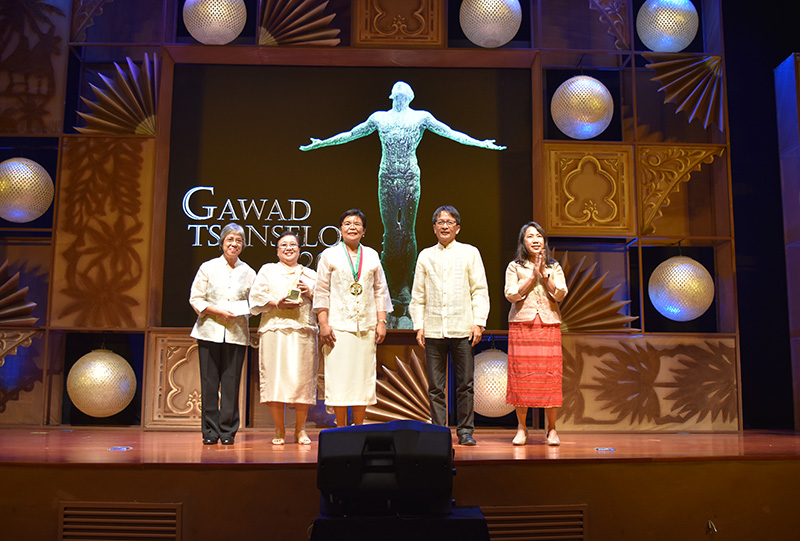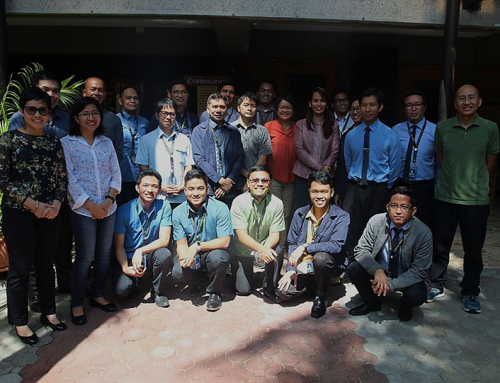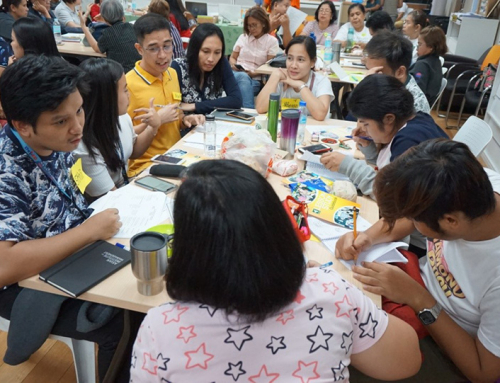The Lesson Study Program (LSP) of NISMED received the prestigious Gawad Tsanselor Para sa Natatanging Programang Pang-Ekstensiyon on 21 June 2019 at the Institute of Biology, UP Diliman. During the awarding ceremony, the Gawad Tsanselor Search Committee, chaired by Vice Chancellor Fidel Nemenzo, recognized the substantive and significant contributions of the LSP in creating opportunities for Filipino teachers to acquire knowledge and develop capabilities in science and mathematics teaching by introducing teachers to a new professional learning model where these acquisition and development are embedded and sustained within a community of practice.
The direct beneficiaries of the LSP are the classroom teachers from elementary and secondary schools in different parts of the Philippines. Since its formal launching in 2006 through the NISMED’s Collaborative Lesson Research and Development (CLRD) Project, 57 schools and universities and 557 teachers have benefited from this program. In the last three years, a total of 48 schools and 193 teachers benefited from the program. These schools are located in different regions of the Philippines – National Capital Region, Regions I, II, III, V, VI, and X.
The LSP exposed classroom teachers to science and mathematics teaching that are advocated by NISMED (Teaching science through inquiry and Teaching mathematics through problem solving) before teachers are initiated to lesson study. Lesson study (LS) is a classroom-based professional learning activity of teachers collaborating to design a lesson to address a particular long-term goal for their learners. The lesson is called a research lesson because it involves systematic planning, implementation, and analysis not only in relation to student learning but also in relation to their own learning as teachers. Evidence of students’ thinking and learning is gathered during the actual lesson implementation which becomes part of the data informing the post-lesson analysis and revision of the lesson. Teachers then write or present their lesson study reports including their reflection about the activity. Depending on the result of the first implementation and the ensuing discussion, another teacher in the team may re-implement the lesson in her class.
The LSP contributed also to the research mandate of the University through the use of data collected by NISMED staff to produce and publish research outputs. To date, the publications produced by NISMED through the LSP include three books (Lesson Study Book 1, Lesson Study Book 2, and Lesson Study Guidebook), nine articles in international refereed journals, and 60 conference papers. These publications documented the actual experiences of NISMED staff and collaborating teachers in the implementation of lesson study, the challenges in teaching science and mathematics that were addressed through lesson study, and the processes and stages of implementing lessons in schools.




